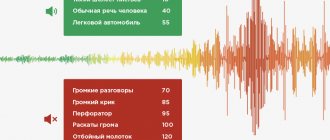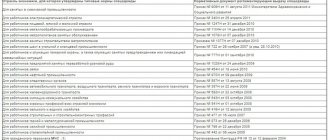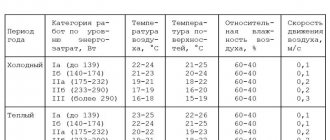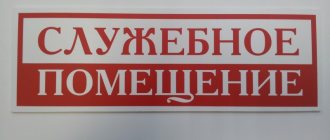The state has established a period during which it is prohibited to make noise, listen to loud music and carry out repair work in residential buildings. Silence is guarded during the day and at night. If you plan to carry out any actions that may disturb the peace of other citizens, it is worth finding out permissible noise level in the apartment according to the law.
The value of the indicator is especially relevant for people who live in apartment buildings in large cities. It's not just the neighbors who can make loud noises here. If the noise level causes concern even at acceptable times, citizens of the Russian Federation have the right to initiate an examination and bring the offender to justice. The rule applies equally in a situation in which neighbors were listening to music too loudly through amplifiers, or there was construction going on under the windows. We will talk further about the norms enshrined in the law, the specifics of conducting an examination in the event of a violation, and other nuances that must be observed.
Current legislature
The permissible noise level is measured in decibels. In residential premises, the volume allowed does not exceed 55 decibels during the day and 45 decibels at night. The permissible standard is established because exposure to higher noise levels can negatively affect human health. First of all, the nervous system suffers. Headaches may occur.
The maximum permissible noise level in a residential building is established by the codes of the Russian Federation and standards adopted by other bodies. Regardless of how many decibels the outgoing sound is, what its source is, a level above 70 decibels is considered harmful to the physical and psychological state of citizens. At night, violations can be dealt with by calling the local police officer. This is possible if neighbors listen to music loudly. It is more difficult to correct the situation during the daytime. To force neighbors to stop, a special examination or the involvement of a commission from Rospotrebnadzor will be required. In any situation, it is necessary to write a statement of complaint. It will be officially recorded. After the appropriate measurements have been completed, a report will be drawn up.
In addition to the reproduction of noise from neighbors, there is the concept of “compliance with standards by the developer during the construction of residential buildings and premises.” In accordance with the current legislation of the Russian Federation, the sound insulation of an apartment building should not exceed 50 decibels. Airborne noise is taken into account.
It can be:
- conversations between neighbors in a residential building;
- operation of a TV behind the wall of an apartment building;
- other noise exceeding the maximum permissible DCB level.
If the maximum permissible norms are violated, and this fact is proven, a fine will be collected from the developer. The proceedings begin after residents file a complaint and conduct various examinations.
What is the danger of noise that exceeds permissible standards?
Whatever the reason for exceeding permissible standards, it interferes with rest, study and work.
The human body reacts negatively to noise. Prolonged repair work or other actions that disturb the silence lead to a decrease in reaction, absent-mindedness, irritability, nervousness and hinder intelligence.
The citizen's productivity decreases. Exposure to sounds exceeding 70 decibels increases the risk of accidents and causes hearing loss. This especially affects pensioners, young children, disabled people and women.
Video
If a person on the street or at home is exposed to noise up to 60 decibels for a short period of time, this is not dangerous. However, exceeding the value of the indicator can provoke the development of nervous system disorders.
| Noise produced by various activities | |
| Sound source | Indicator value |
| Human whisper | 30-40 dB |
| Baby crying | 70 db |
| Elevator movement | 35-43 dB |
| Working air conditioner | 45 dB |
| Refrigerator operation | 42 dB |
How to measure noise level?
Having found out what noise standard in decibels in an apartment during the day and night is established by current legislation, it is worth familiarizing yourself with the specifics of the measurement. You can perform the action yourself. To do this you will need to purchase a special device. It is called a noise meter. However, such devices are expensive and are not essential. Therefore, their use at home is practically not carried out. There is no point in purchasing the device. The authorized bodies will not take into account measurements made by the citizen independently. Specialists should be involved in drawing up the act.
The need to measure noise levels after 23 hours in practice can arise quite often. The source of sound can be not only neighbors, but also organizations located nearby. In this situation, it is necessary to contact specialists from government or private structures of the Russian Federation who measure the sound level in a residential building. In this case, the procedure is performed several times. Ideally, it is recommended to do it twice during the day and twice at night. The process is performed with a window open and closed in a residential building. You can contact specialists if ordinary sounds from the street penetrate into your apartment and cause discomfort.
Video
Measurements are taken to ensure that all building regulations have been met. If it can be proven that there is a violation, repairs to soundproof the premises will fall on the shoulders of the developer.
Regardless of who conducts the examination in residential premises, after the measurements a document is drawn up that has legal force. It records all the results obtained. The document is used when filing a lawsuit.
Noise standards
It is believed that sounds up to 75 dB do not affect hearing in any way, therefore sanitary standards stipulate that the noise level at work should not exceed 80 dB. And the harder the work, the lower this limit. But what do these numbers mean?
For comparison, the noise level during a conversation is 60–65 dB, on a busy street – 75–85 dB. But not only constant noise pollution is harmful to the human ear - sharp loud sounds (especially more than 140 dB) are also harmful. The same sanitary standards do not allow this figure to be higher than 125 dB.
Permissible noise during the day and at night
Taking into account all generally accepted standards, the permissible noise in an apartment during the daytime should not exceed 40 dB. Exceeding the volume is allowed only up to 15 dB, which means that on average the noise should be around 55 dB. At night, sounds should not exceed 45 dB, and the following actions are strictly prohibited:
- Do not listen to TV or music devices loudly.
- Sing loudly.
- It is prohibited to launch pyrotechnic products.
- It is not permitted to move furniture or make repairs.
Attention! Restrictions can be lifted only in the event of an exception, when circumstances have arisen that cannot be avoided.
For example, during the operation of public services, which were assigned a certain task.
Noise level during construction and renovation
According to the law of the Russian Federation, decibel standards in an apartment are also established during repair and construction work. The total duration of all work should not exceed three months, making noise for no more than 6 hours a day is allowed. As for the time, it is set by local laws. As a rule, loud work is allowed to be carried out no earlier than 9 am and until 7 pm, taking into account the time allotted for quiet time from 13.00 to 15.00.
Sanitary noise standards in a populated area
Sanitary standards include many different factors:
- First of all, frequencies are measured.
- The time it takes to exceed the background noise is taken into account.
- The nature of the sound is determined.
Sanitary standards are based only on a level of exposure to sound frequencies that, with prolonged exposure, cannot cause any harm to human life and health.
Noise standards in an apartment building - latest changes in the law 2021-2021
For the local area next to an apartment building, slightly different noise restrictions have been established. In the daytime (from 7 to 23 hours) the noise level should be no more than 70 dB, and in the evening - no more than 60 dB. However, please note that after 19.00 some other activities that make a lot of noise are also prohibited:
- Carrying out repair work.
- Launching fireworks.
- Loud music.
- Parties.
- Loud singing.
- Whistling.
Violation of these rules is subject to standard administrative liability under Article 3.13. Punishment for individuals - from 1 to 4 thousand rubles or a warning, for officials - from 4 to 8 thousand rubles, for legal entities and individual entrepreneurs - from 40 to 80 thousand rubles. The main regulatory act is Federal Law No. 52 (the so-called law on silence), as well as various regional laws. The latest amendments, which limit the use of certain sounds after 7 p.m., were made to the law on silence in 2012, and the law has not changed since then.
At work
Sanitary noise standards also apply to the workplace. Moreover, the governing law in this case is the sanitary law SN 2.2.4. This law states that the maximum permissible noise level in the workplace depends on two parameters - the degree of severity of work and the degree of stress of the worker. These two parameters must be determined by a special commission or any person who has the appropriate education. Noise standards according to the legislation in 2021-2021 in the workplace are as follows:
| Type of work | Maximum noise level |
| Light to medium work with low stress levels | 80 dB |
| Heavy, low-stress work | 75 dB |
| Light to medium-stress work | 70 dB |
| Heavy work with medium voltage levels | 65 dB |
| Various high voltage jobs | 60 dB |
| Various jobs with very high voltage levels | 50 dB |
Violation of noise standards is equivalent to a violation of sanitary standards. The fact of a violation is established on the basis of a control noise measurement using a special device that determines the noise level in the room. Control measurements are carried out by Rospotrebnadzor authorities during a scheduled or unscheduled inspection of an enterprise. If violations are detected, a person may be held administratively liable under Article 6.4. The punishment in 2021-2021 is:
| Legal status of the offender | Amount of fine |
| Individual | from 500 to 1,000 rubles |
| Executive | from 1,000 to 2,000 rubles |
| Individual entrepreneur | from 1,000 to 2,000 rubles or suspension of activities (up to 90 days) |
| Entity | from 10,000 to 20,000 rubles or suspension of activities (up to 90 days) |
The noise level in the workplace is determined depending on the type of activity
For a person who works in a managerial position, has a creative profession, or simply works in an office, the permitted noise limit in these cases should be 50 dB. And in a laboratory or administrative building where offices are located, the noise level cannot exceed the limit of 60 dB.
If workplaces are located in the dispatch service, typing bureau, or in information processing rooms on computers, the noise level here cannot be higher than 65 dB. In laboratory buildings with loud equipment, or offices with control panels, the noise should not exceed 75 dB. In industrial buildings on the territory of the enterprise, unacceptable noise levels exceed 80 dB
At the workplace of a diesel locomotive or train driver, the noise level is allowed up to 80 dB. In the driver's cabin of a commuter electric train, the noise level should be 75 dB. In the staff rooms of carriages and trains, the noise may be within 60 dB. As for river and sea transport, the noise level of such workers ranges from 80 dB to 55 dB, depending on the place of work on the ship.
The noise level in industrial premises where engineering and technical workers work should not exceed 60 dB. In the premises of computer operators, the sound range is not permissible above 65 dB. But in the rooms where computing units are located, the noise level should not be more than 75 dB. A person who constantly works in a noisy room gets used to the noise, but prolonged exposure to it causes frequent fatigue and deterioration of health.
The regulation of industrial noise in the workplace is carried out taking into account the factors of the human body. It is worth noting that depending on the frequency characteristics of the noise, the body responds differently to noise of the same intensity. So, as the frequency of sound increases, its effect on the individual’s nervous system will be stronger, and the degree of harmfulness of noise directly depends on its spectral composition.
Noise standards in workplaces are carried out taking into account the fact that the individual’s body, depending on the frequency response, reacts differently to noise of the same intensity. The higher the frequency of the sound, the stronger its effect on the human nervous system, i.e. the degree of harmfulness of the noise depends on its spectral composition. The impact of industrial noise on the human body is detrimental. The noise spectrum indicates which frequency range contains the largest share of all sound energy contained in a given noise.
Why is expertise required?
Having found out how many decibels are allowed in an apartment during the day, you need to take into account that exceeding the permissible noise level is one of the main factors of environmental pollution. This indicator must be constantly monitored in order to prevent deterioration in health.
SES workers have created a number of regulatory documents, in accordance with which the degree of danger of noise in residential premises, on the street, in production, in medical and educational institutions is determined. Their meaning may vary depending on the time of day. Monitoring compliance with permissible noise levels in various areas of human life is carried out by authorized services. Thus, the State Inspectorate is responsible for measurements in production. The Labor Inspectorate monitors the indicator in workplaces. Compliance with acceptable standards in residential premises is monitored by the sanitary and epidemiological service.
Noise level in decibels (dB)
Indeed, the normal noise level is often significantly exceeded. Here are examples of just some of the sounds we encounter in our lives and how many decibels (dB) these sounds actually contain:
- Spoken speech ranges from 45 decibels (dB) to 60 decibels (dB) , depending on the volume of the voice;
- Car horn reaches 120 decibels (dB);
- Heavy traffic noise – up to 80 decibels (dB);
- Baby crying – 80 decibels (dB);
- Operation noise of various office equipment, vacuum cleaner - 80 decibels (dB);
- Noise of a running motorcycle, train - 90 decibels (dB);
- The sound of dance music in a nightclub is 110 decibels (dB));
- Airplane noise - 140 decibels (dB);
- Noise from repair work – up to 100 decibels (dB);
- Cooking on a stove - 40 decibels (dB);
- Forest noise from 10 to 24 decibels (dB);
- Lethal noise level for humans, explosion sound - 200 decibels (dB)).
As you can see, most of the noises that we encounter literally every day significantly exceed the permissible threshold. And these are just natural noises that we cannot do anything about. But there is also noise from TV and loud music, to which we expose our hearing aids. And with our own hands we cause enormous harm to our hearing.
What to consider?
If the permissible noise level in a residential apartment is regularly exceeded, this cannot be ignored. Sooner or later, this will affect human health. In this case, it does not matter at all what provokes the increase in the indicator.
Before hiring a specialist to measure the permissible noise level in a residential building, you need to find out whether he has a license to carry out such activities. Even if you plan only short-term interaction with a specialist, it is necessary to conclude an agreement.
When measurements have been taken, it is important to check that the documents contain all the necessary information specified in accordance with established rules. Only after the document on the results of the examination has been received, you need to contact Rospotrebnadzor directly. If their visit does not produce results, you will need to draw up a statement of claim and submit it to the court. If neighbors in a residential building often listen to music loudly or make noise at prohibited times, you need to contact the local police officer. Violation of the permissible level must be recorded. Then you will need to write a statement and draw up an act of violation. If you have to go to court in the future, these documents will be required.
Noise in the apartment. What to do? Algorithm of actions
Regardless of the source of noise (with the exception of noise from the actions of “cheerful” neighbors), the algorithm of actions is as follows:
Complaint to the regulatory authority
You should file a complaint about excessive noise levels in your living space to the regulatory authority. This is the State Housing Inspectorate for your region and the Office of Rospotrebnadzor. The addresses and telephone numbers of these authorities can easily be found on the Internet.
The complaint should indicate the alleged source of noise (equipment located in the residential building itself, for example, an air conditioner, ventilation system, or outside the house, for example, nearby objects whose activities emit noise).
Noise level measurements (dBA)
As part of checking the validity of your complaint, the Rospotrebnadzor Office has the right to measure the level of emitted noise. Such measurements are carried out and a final protocol is drawn up by the federal budgetary health care institution “Center for Hygiene and Epidemiology” for the relevant region, republic, territory, etc.
The owner of the residential premises himself has the right to contact the specified institution in order to measure the noise level in the apartment. Moreover, the person who owns the residential premises has the right to contact any commercial organization that carries out noise measurement activities.
The resulting conclusion (measurement protocol) will subsequently be one of the evidence of violation of the applicant’s rights in the case of a claim for a ban on activities, or in a claim for the elimination of violations of rights to a favorable environment... (dismantling equipment or bringing the noise level into compliance with the requirements of the law).
Administrative responsibility
A resolution to bring a person to administrative responsibility for exceeding the permissible noise level (under Article 6.3 of the Code of Administrative Offenses of the Russian Federation, 6.4 of the Code of Administrative Offenses of the Russian Federation) will also be evidence in a civil case initiated in the future (as indicated above in a claim to eliminate violations of a citizen’s rights). A civil lawsuit in court is necessary if the violator, brought to administrative responsibility, has not taken appropriate measures to eliminate noise, has not made the right conclusions, and continues to be inactive.
Therefore, before immediately going to court with a claim to eliminate violations of rights, it is sometimes reasonable to first try to get the regulatory authority to bring the guilty person to administrative responsibility and issue that person an order to eliminate the violations.
Judicial practice of bringing to responsibility under Art. Art. 6.3, 6.4 Code of Administrative Offenses of the Russian Federation:
- Responsibility under Art. 6.4 of the Code of Administrative Offenses of the Russian Federation for exceeding the permissible noise level. Arbitrage practice
- Responsibility under Art. 6.3 of the Code of Administrative Offenses of the Russian Federation for exceeding the permissible noise level. Arbitrage practice.
Filing a lawsuit
Depending on the situation, the following types of claims are possible:
1) Statement of claim for dismantling equipment located in the house . As a rule, residents complain about the noise of air conditioning and ventilation systems. This requirement can be satisfied by the court if it is established that the permissible noise level of the operation of the equipment is exceeded and the court determines that it is impossible to eliminate violations of citizens’ rights in any other way. The legality (obtaining permits) for the installation of such equipment is important.
2) Statement of claim to eliminate violations of citizens' rights by bringing the noise level into compliance with the requirements of sanitary standards and regulations . Such a requirement is made when the noise-emitting equipment is legally installed and the requirement for its dismantling cannot be satisfied. For example, an elevator, a heating unit in a residential building, etc. In satisfying the requirement, the court points to the defendant’s obligation to carry out noise insulation work.
The requirement to bring the noise level into compliance can be made not only to persons carrying out activities in the residential building itself, but also to owners of external noise sources.
The requirement to bring the noise level into compliance... can also be presented to the owners of the apartment above, as a result of the renovation of which, the floor covering was removed or replaced, providing proper sound insulation (see the article “Is it possible to force neighbors from above to soundproof the floor”?)
3) Statement of claim for a ban on activities that create unfavorable noise exceeding the maximum permissible values. It should be understood that this measure is exceptional and courts rarely satisfy such claims. It is necessary to prove the fact that the permissible noise level was exceeded, the systematic violation of citizens' rights as a result of the defendant's activities, and the inevitability of the violations. In this case we are talking about the activities of public catering establishments (cafes, restaurants, bars), shops. The court has the right to prohibit the activities of these establishments only at night (from 11:00 to 07:00).










